- Home
- Mark Zubro
Another Dead Republican Page 2
Another Dead Republican Read online
Page 2
One of their great-great grandparents had been at the formation of the Republican Party in Ripon, Wisconsin. The Grums had been up to their nipples in Harrison County politics for decades.
Edgar’s mother roosted in the center of the sofa that sat against the north wall. Veronica referred to her mother-in-law as the dragon lady. The morbidly obese woman ruled her family. She was the County Clerk of Harrison County and had been for years. She was also the social arbiter of the Women’s Leisure Club which she ran with an iron fist. It was founded during the American Civil War by women whose men had gone off to fight in the Wisconsin 4th Regiment Infantry.
The women had met continuously since then, sometimes doing good, and sometimes being the backwoods equivalent of Peyton Place. In more modern times, their definition of modern being that which began before or during the Hoover administration, they’d become the stratified social hierarchy of the county.
My sister described them as, “The Harridans of Harrison County.” Veronica avoided all contact with the women of the club.
The dragon lady’s husband, Charles Dudley Grum, was a combination of bombast and bully, Harold Hill and Lord Voldemort, a Yankee peddler mixed with evil incarnate. He sat on the sofa next to his wife. His girth matched hers inch for inch. At the moment, he wore black, horn-rimmed glasses over dark soulless eyes, a vile colored suit on his immense bulk, and garish maroon shoes on gargantuan feet.
Both radiated hatred, disapproval, and disgust. To be fair, I don’t think this was because Scott and I walked in. I’d rarely seen them have any other look on their faces.
The children matched the parental tonnage, their other two sons and their wives, plus various cousins, aunts, and uncles. Edgar being dead wouldn’t really have fit in. I’d met many of them at least once, that occasion being Edgar and Veronica’s wedding. I couldn’t remember all their names. Edgar was the youngest.
In the living room some stood or leaned against the walls. A few sat on the edge of chairs. For one of the rare times when I’d been in the Grum family’s presence, the younger son, Dewey, was not obnoxiously falling over everyone taking pictures.
I looked at them curiously. Not one of them touched another. Nobody reached out to comfort, hold hands. Maybe they didn’t do that kind of thing with strangers around. Maybe they weren’t a warm, huggy family. Nonetheless a son/brother had just died. I’d expect some kind of desire for human connection.
Mostly they looked sort of constipated.
You know the scene in westerns where a character walks into a bar and the piano music abruptly ceases and all conversation stops? That was what entering that room felt like.
At least they’d all assembled and rallied around at a moment of crisis.
Scott and I got cold stares.
No matter, I walked straight up to Edgar’s mother and father, held out my hand, and said, “I’m so sorry for your loss.”
I more than disliked them, but I knew basic common courtesy.
The old woman touched my hand for a millionth of a second, the husband for less than that. Scott’s outstretched hand and murmured sympathy were met with stony silence. Perhaps they thought the mumbled thank you to me covered the both of us.
Much as I disliked them, they’d just lost their son. They were in the middle of a horror, and I needed to cut them a lot of slack. Was there a manual for proper grief behavior? No.
I needed to be less judgmental.
FIVE
Wednesday 6:12 A.M.
My sister entered the room. She wore an old sweatshirt over blue jeans. I remembered the shirt as one that her first boyfriend gave her in high school. It was too big for her then, was still too big.
We flew into each other’s arms. I hugged her and murmured, “I’m so sorry,” over and over. The fierceness of her embrace nearly caused me to gasp for breath.
I may have hated Edgar, but she’d loved him and married him.
When we unclinched, she hugged Scott and thanked him for coming.
She held both of our hands. Without ceremony, she said, “If I could speak to you.” She led us deep into the house. We wound up in Edgar’s office/den, which was on the far side of the house from the living room. I knew what she was doing, getting us as far away from Edgar’s family as possible.
Veronica slumped into the massive, over-stuffed, vinyl- covered, brown swivel chair behind Edgar’s desk.
The room was forty-by-forty and decorated in hunting lodge awful: heads of dead animals nailed to the walls, whole stuffed dead animals in various stages of agony with obvious wounds unconcealed by the taxidermists, probably at Edgar’s request. Besides the former live woodlands creatures, a herd of huge bronze sculptures of various critters had been crammed into the room. The largest bronze piece was a grizzly bear that was over eight feet tall and must have weighed over eight hundred pounds. It stood two feet to the right of the desk. Near the door an eleven foot see-through canoe hung from the ceiling. At the rear were sliding glass doors that led to the backyard.
Edgar was a hunter. I’d heard he was an awful shot. Were the stuffed creatures purchased or genuine hunting trophies? I guess I didn’t much care about the truth of that. I’m sure I was more sympathetic to anti-gun stuff and definitely far more pro-animal than Edgar was.
Scott and I had taken our traveling bags with us. We tossed our backpacks and placed the laptop computer on top of them in a corner, a six-foot-long bronze walking bear to the right and the grizzly to the left.
With proper lighting, small planes could have landed on the top of his desk. That is if it hadn’t had a huge collection of junk nearly from one end to the other. On top of the desk right in front was a row of drinking vessels. Each had a picture of a deer: a personalized autumn deer coffee mug, a winter deer personalized travel mug, an autumn deer personalized gift tin, a winter deer personalized gift tin, a deer etched stainless water bottle, a sixteen ounce winter deer beer stein, a green engraved vintage deer coffee mug, a red engraved running deer coffee mug, and a stack of deer personalized ceramic coasters. Most of the pictures matched the deer personalized door mat just inside the door. The only significant part of all these to me, besides Edgar’s name emblazoned on all of them, was that at least the pictures weren’t of dead dear. All seemed pretty much frozen in life. Maybe the hunter hadn’t quite got around to killing them yet.
Crammed next to the computer on top of the desk was a box that the outside label said held ten reams of paper. Scattered drifts of paper surrounded it, and random bits of paper stuck out from the top. The box seemed to have passed from containing new reams of paper, to being a trash bin.
The only actual open space on the desk was a small bit in the center in front of the huge chair. The space was big enough for a computer with a square foot of room to rest one’s arms. In the far right hand corner of the desk was a picture of Edgar, Veronica, and the kids with a tent and a picnic table in the background. From the age of the kids, I thought it might have been taken in the past year or two.
I pulled a chair close, sat next to Veronica, held her hand.
She took several shuddering breaths then said, “I got back from, from… seeing Edgar… about an hour ago.”
I put my arm around her. She leaned into me and said, “I’m sorry I lost it on the phone.”
I thought if there was ever an appropriate time to lose it, the sudden death of one’s spouse was one of them.
I said, “You know it’s okay,” and added, “Mom and Dad are on their way.”
“Good.” Mom would most likely be the one Veronica leaned on. Mom could be a rock.
I asked, “How are the kids?”
“They aren’t up yet. That’s what I have to do next, tell them. I think that’s why I’ve been able to pull myself together. I’ve got to get them through this. I’ve got to get myself through this. I don’t know how.”
I said, “We’ll do everything we can. Is there anything we can do right now?”
“Make it all go away.”
/> “I would if I could.”
“The police have been here. They said they would come back. They asked me where I was all night. They interrogated me. I’m frightened.”
I said, “There’s nothing to be frightened of.”
“I don’t know anything. The cops scared me. Are we in danger? Why was he killed? The police wouldn’t tell me anything. I was here with the kids. He was at that stupid election thing.”
Tuesday had been the recall election of the anti-human being governor. I’d followed the news about it closely in the papers and on the Internet. When we’d gone to bed, the results had been too close to call.
I said, “You don’t need to be frightened. We’re here. Mom and Dad will be here soon.”
“I just don’t know what to do. He was involved in that stupid election. They were going to party all night. I didn’t care much about the damn election. I certainly don’t care about it now.”
“Is that where,” I hesitated, “it happened?”
“I guess. I don’t really care. I’m not sure I heard much of what the police said.”
“My suggestion is that you call your attorney. Now.”
“The family said they had someone coming over.”
“Is this person your personal attorney?” I asked.
“No.”
I said, “Do you have a personal attorney? One separate from theirs?”
Veronica said, “There’s the woman who did our wills and the family Trust, but is that really necessary?”
I said, “It might be important.”
She shook her head. “I’m just not sure.”
I said, “At a time like this, especially since the police said it was murder, it could be vital.” I didn’t really want to remind her at this moment that the family members were always the most likely suspects, very much including the wife. Although with Edgar’s family, the police had a whole raft of rotten, evil familial possible suspects to choose from.
She scratched her head. “I guess.”
Scott said, “If it’s easier, I can call.”
“Would that be okay?” I asked.
Veronica said, “She’s an old friend from college.” She took out her cell phone and punched a few buttons, then handed it to Scott. I heard it ringing. He stepped to the other side of the room. Scott was so tall, the top of his head almost touched the jaw of a deer who looked stunned that Edgar could have been such a good shot. Right or wrong, the deer was dead.
I glanced out the windows to the backyard. I could see a small part of the outdoor pool and the upper swirls and turns of a mini-skateboard park Edgar had ordered built for his oldest son. Beyond these, newly budding tree limbs fractured the pale blue of the sky. The sun poured through the half-formed buds of early April. I could hear Scott murmuring into the phone.
SIX
Wednesday 6:30 A.M.
I asked, “The police said murder?”
She nodded.
“Do they have a suspect?”
“I have no idea.”
Scott walked over, held the phone out to Veronica. He said, “She wants to talk to you.”
Veronica took the phone. Listened. Said, “Okay,” several times. Clicked the phone shut.
“What did she recommend?”
“Not to say anything. I don’t know anything. She said she’d get here as soon as she could. She said to wait to talk to the police until she gets here. I don’t know when they’ll be back. I don’t care when they’ll be back. I’m worried about the kids.”
If worrying about the kids got her through the first stages of grief, it was okay by me.
She said, “What do I say to the children? How do I explain?”
I said, “I’m not sure. Tell them you love them. They’re old enough to understand death. I wouldn’t lie. I wouldn’t go into gruesome detail, either.”
“I don’t know any gruesome details.”
“Good.”
She said, “I want you and my lawyer here when I talk to the cops again.”
“Sure.”
“And I don’t have any cash.” She pointed at the box in the middle of the desk. “That’s what I was starting on when you drove up. The financial stuff is a mess. There must be bills to pay. I don’t have any cash. I don’t know about life insurance. Or how to pay the mortgage.”
“You have bank accounts and things?”
“Edgar took care of all of that. I’ve got a credit card with a limit.”
“No ATM card?”
“No. Edgar did all the banking. Wrote the checks. Paid the bills. Gave me cash when I asked for it. All the investing. Taxes. Everything.”
“Where are the records?”
“He kept it all in there.” She pointed at a door. “That’s a room with files and things.” She pointed to the box and the scattered papers on the desk. “I took out that box and tried to go through it. It’s a mess, a total mess. I don’t understand it. I don’t have time to understand it right now. I need to deal with the children.” She drew a deep breath.
“How can I help?” I asked.
She said, “He never went over financial things with me. I went in there earlier, there are a zillion more boxes of papers. I glanced in a couple others. Nothing is in order. Nothing is organized. What am I going to do? I’ve got to handle the kids, the funeral, and they said it was murder.” She gulped. “Right now, I just need basic walking around money, and I’ve got to pay for the funeral.”
I said, “You guys didn’t discuss all this?”
“No. We’re young. Who expects to die at this age? And to be murdered?”
“Did he have life insurance?”
“I think so. But do they pay off quickly enough for me to have money to live on?”
This was not the time to say, how can a modern woman let her husband just run things like a medieval fiefdom. She’d made her peace with him. I was not about to start a war with her.
“Do you want me to help you sort it out?”
“You’re always so good at organizing things. You always know what’s what. While I’m with the kids, will you start going over all that stuff? I’ll need help anyway. I never was good with money.”
“I’ll give it a start, sort it out, then go over it with you.”
“And when I deal with the Grum family, I want you, Scott, mom and dad, my lawyer, the police, the army, anybody with me.” She shuddered then stood up. “I better get to the kids. I don’t want them finding things out from them.”
I knew who she meant by them, Edgar’s evil family.
She continued, “It’s nearly the time they wake up for school. Well, no school today.”
“Good luck,” I said. I stood and hugged her. “If you need any help, Scott and I are here.”
“I know. Thank you.”
She took a key out of her jeans. “This is for that room with the financial stuff.”
I put it in my pocket.
Patricia, her youngest child, opened the door. Patricia was six. She wore pink pajamas with little blue and yellow bunnies dancing on them. Early morning sleep clouded her eyes. She said, “Mommy, why are Grandma and Grandpa here?” She noticed us. “Hi, Uncle Tom, Uncle Scott.”
We nodded hello.
She went to her mother and hugged her.
“Are your brothers up?”
“I don’t think so. Don’t we have to get ready for school?”
“No school today. Mommy has to talk to you.” She took her daughter’s hand.
“What’s going on?”
“Let’s go find your brothers.”
At the door she turned back and said, “If you two want to stay in here, that’s fine. In fact, it might be better.” She didn’t elaborate, and I didn’t ask. She had huge problems to deal with. If she meant for some reason we were to guard this room, or if she meant this as a safe haven from Edgar’s family, or if she meant the two of us would be more comfortable, or maybe she meant nothing by it, or maybe she thought all of them might be true. Maybe she
was just trying to get through the next five minutes without sobbing hysterically so she could deal with her kids. Nobody was memorizing what she said. Nobody was going to hold her to what she said, not at a time like this.
Veronica and Patricia left together hand in hand. Moments later we heard a soft tapping on a distant door. She was knocking before entering.
SEVEN
Wednesday 6:51 A.M.
Scott closed the office door then sat down on the maroon leather couch. I sat in Edgar’s chair. It was extra large, built for the heavy-set man that Edgar was.
Scott waved a hand at the assembled dead animals. “If I was going to build a shrine to killing innocent creatures, this would be it. If this was an English manor house, and we were in a British cozy murder mystery, the dead body would be in this room.”
I glanced at the silent, mouth-open-as-if-in-mid-screech, bronze wolf. “It is a creepy place.”
Edgar’s older brother, Barry, manipulated his bulk into the room. He didn’t knock. He looked neither of us in the eyes as he said, “Everybody’s pretty hungry.” His prominent nose was very red.
I wanted to say, you aren’t crippled, get your ass into the kitchen and make something yourself, or unbend far enough to rush to a fast food place and get a to-go order for everyone.
Barry’s shtick in the family, as far as I had experienced it, was to be master of the snide-aside. His forte was the mumble-under-the-breath not-quite-in-a-stage whisper comment such as: “How can he be qualified to be president? He’s never learned to march in cadence?” Or this, “That’s not an American car they bought. It better run perfectly.”
Political debate as theatrical asides? Discussion of policy issues as snide slogans or outright calumny or deliberate personal attacks? Not a whiff of a syllable of significant issues, discussed devoid of emotion and approached rationally.

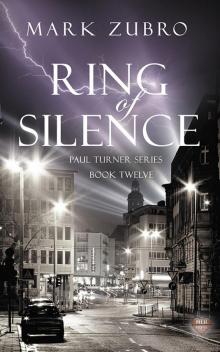 Ring of Silence
Ring of Silence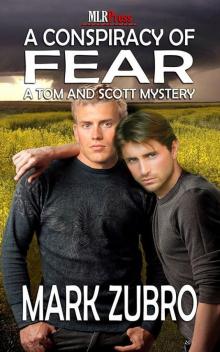 A Conspiracy of Fear
A Conspiracy of Fear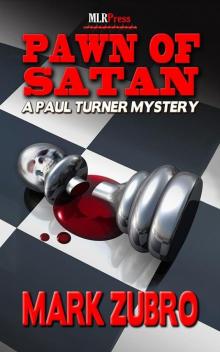 Pawn of Satan
Pawn of Satan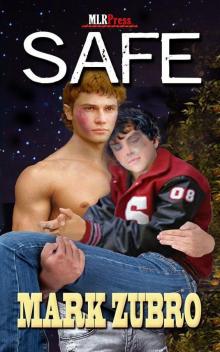 Safe
Safe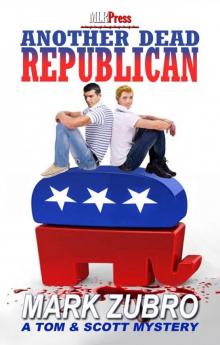 Another Dead Republican
Another Dead Republican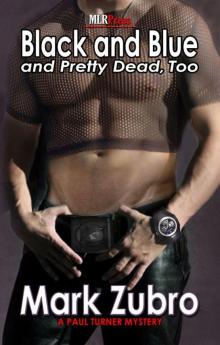 Black and Blue and Pretty Dead, Too
Black and Blue and Pretty Dead, Too Alien Home
Alien Home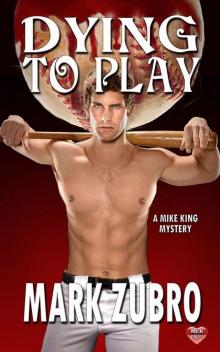 Dying to Play
Dying to Play Alien Victory
Alien Victory